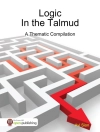Science is a way of knowing about the world. At once a process, a product, and an institution, science enables people to both engage in the construction of new knowledge as well as use information to achieve desired ends. Access to sciencewhether using knowledge or creating itnecessitates some level of familiarity with the enterprise and practice of science: we refer to this as science literacy. Science literacy is desirable not only for individuals, but also for the health and well- being of communities and society. More than just basic knowledge of science facts, contemporary definitions of science literacy have expanded to include understandings of scientific processes and practices, familiarity with how science and scientists work, a capacity to weigh and evaluate the products of science, and an ability to engage in civic decisions about the value of science. Although science literacy has traditionally been seen as the responsibility of individuals, individuals are nested within communities that are nested within societiesand, as a result, individual science literacy is limited or enhanced by the circumstances of that nesting. Science Literacy studies the role of science literacy in public support of science. This report synthesizes the available research literature on science literacy, makes recommendations on the need to improve the understanding of science and scientific research in the United States, and considers the relationship between scientific literacy and support for and use of science and research.
Board on Science Education & Committee on Science Literacy and Public Perception of Science
Science Literacy [EPUB ebook]
Concepts, Contexts, and Consequences
Science Literacy [EPUB ebook]
Concepts, Contexts, and Consequences
购买此电子书可免费获赠一本!
语言 英语 ● 格式 EPUB ● 网页 166 ● ISBN 9780309447591 ● 编辑 Catherine E. Snow & Kenne A. Dibner ● 出版者 National Academies Press ● 发布时间 2016 ● 下载 3 时 ● 货币 EUR ● ID 7145203 ● 复制保护 Adobe DRM
需要具备DRM功能的电子书阅读器












